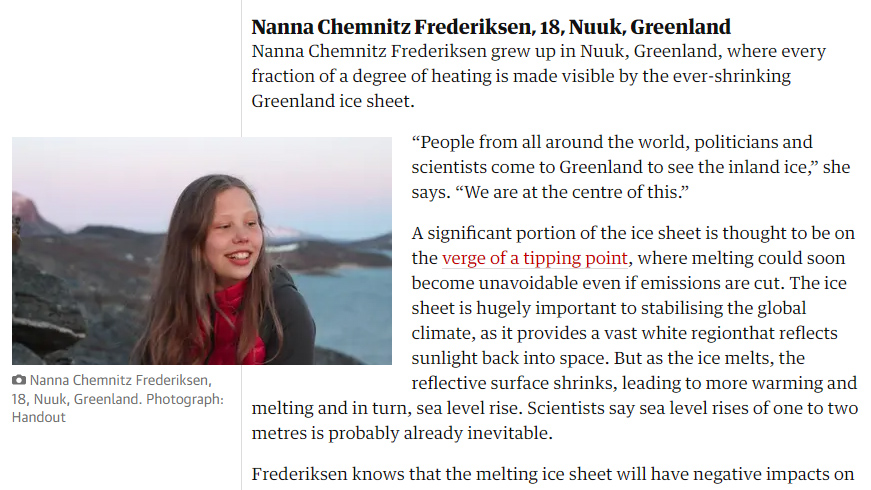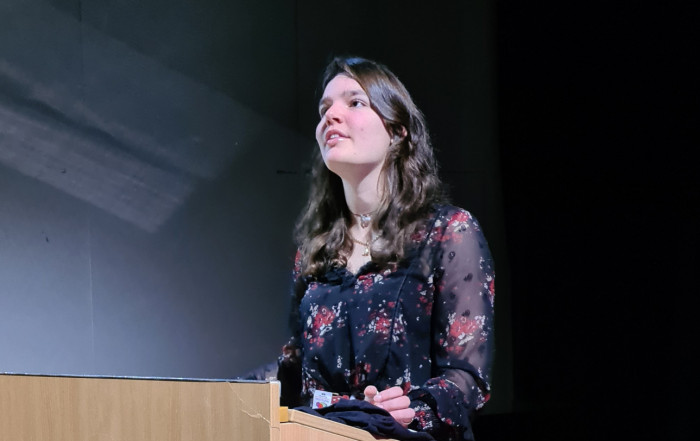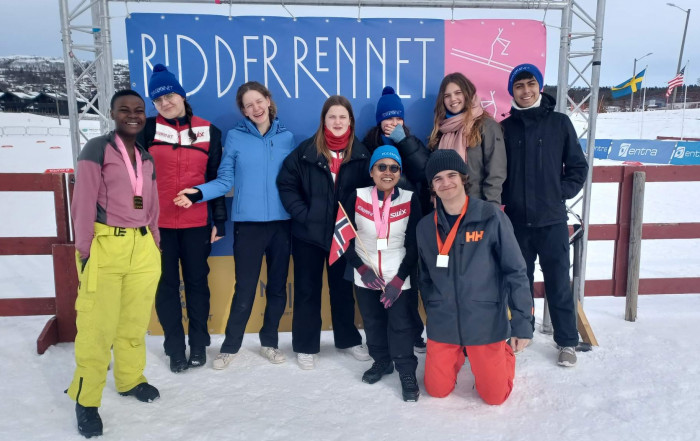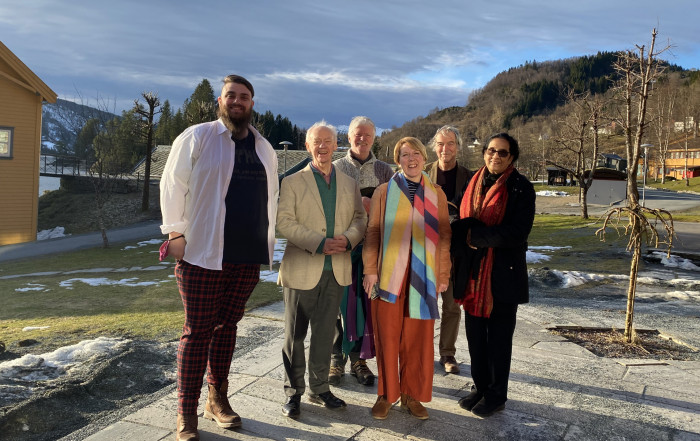“People from all around the world, politicians and scientists come to Greenland to see the inland ice,” she says. “We are at the centre of this.”
A significant portion of the ice sheet is thought to be on the verge of a tipping point, where melting could soon become unavoidable even if emissions are cut. The ice sheet is hugely important to stabilizing the global climate, as it provides a vast white region that reflects sunlight back into space. But as the ice melts, the reflective surface shrinks, leading to more warming and melting and in turn, sea level rise. Scientists say sea level rises of one to two metres is probably already inevitable.
Frederiksen knows that the melting ice sheet will have negative impacts on communities across Greenland, especially in northern settlements such as Qaanaaq where permafrost melting is destabilizing homes and roads and impacting how fishers and hunters operate.
But her real concern lies on the impact it will have globally. “I am not so scared of what the effects of the melting of ice in Greenland will be,” Frederiksen says, “It scares me what effect it can have for the rest of the world.”
Latest News
Global Concerns – Environment, 2022
GC stands for Global Concerns, it is a special day every term when a student-organized event takes place about a global issue. On the 18th March, it was about the environment. Students organized [...]
Ridderuka 2022
Ridderuka means The Week of the Knight. Is the world's biggest universally accessible annual winter sports event for youth and adults in Beitostølen, Norway. The event is known for removing barriers for athletes [...]
Hick Centenary Conference
Between 7 and 13 March, we had the privilege to host the John Hick Centenary Conference 2022. This was an event organized by us and it is the result of well over a [...]




